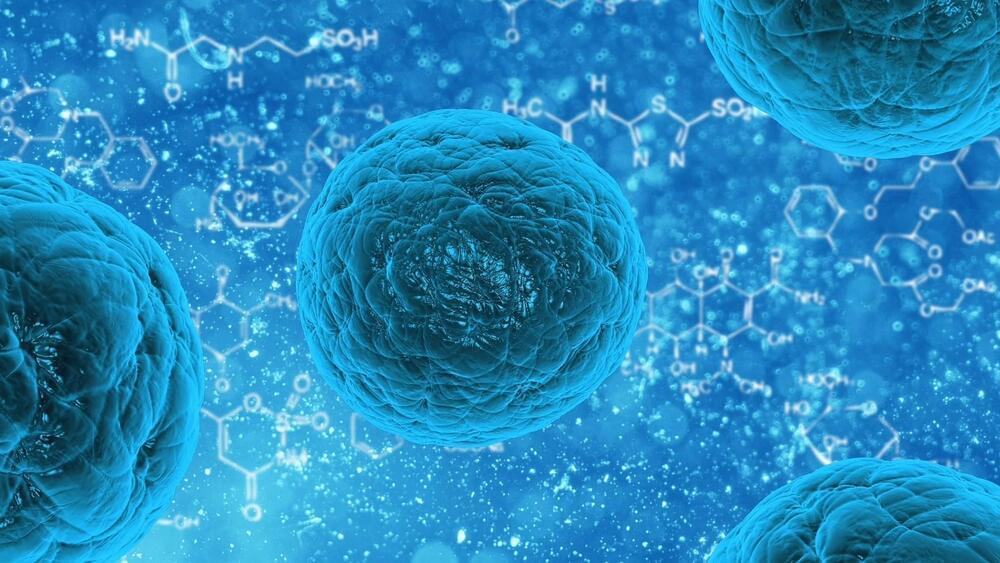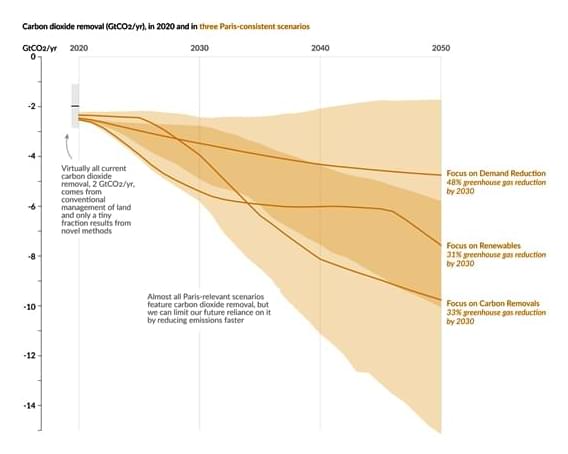Exponential progress can be expected in the decades ahead, if all goes according to plan. […] Combined with emission reductions, and natural methods such as forest restoration, it could finally begin reversing the centuries-long build-up of CO2, which is today approaching a cumulative total of nearly 2,000 GtCO2 since the Industrial Revolution.
The first comprehensive, global assessment of carbon dioxide removal (CDR) – including both current developments and projected future trends – has been published this week by Oxford University.
The detailed analysis finds that natural methods (such as tree and soil restoration) will need to double, while new technologies such as direct air capture need a 1,300-fold capacity increase by 2050.




